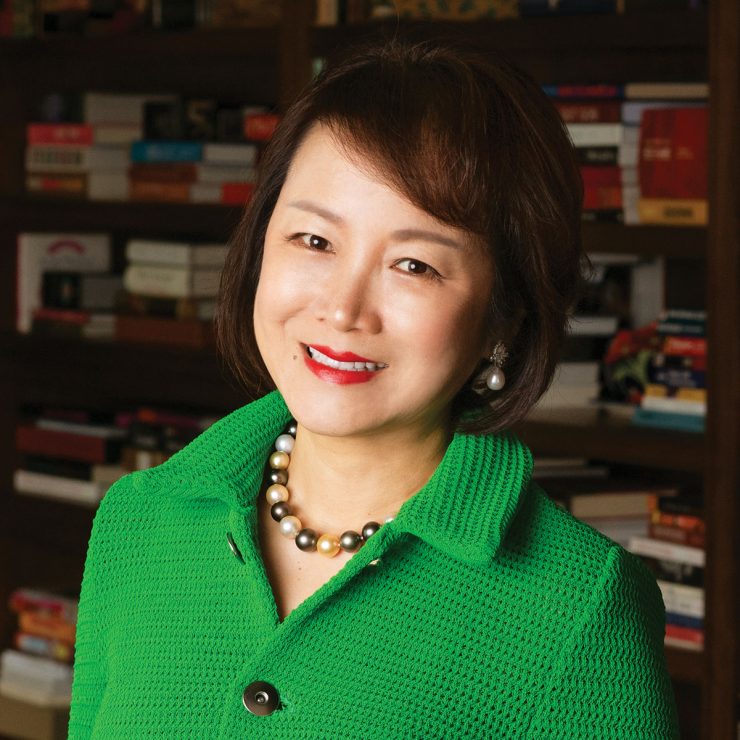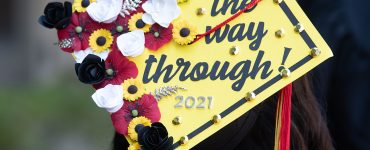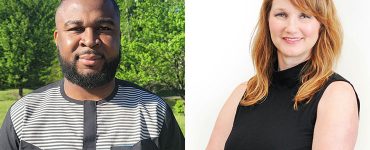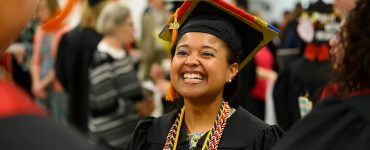Mei Xu is a Chinese American entrepreneur and international businesswoman who has built a multimillion-dollar company and become a credible voice in global consumer business and women’s leadership development. She is the founder and CEO of three global companies, Yes She May, Blissliving Home, and Chesapeake Bay Candle.
Xu is now focused on helping women-owned consumer product companies grow and prosper with the Yes She May product platform. She holds a BA degree from Beijing Foreign Studies University and an MA from the University of Maryland, College Park. She has been a member of the UMB Foundation Board of Trustees since 2018.
SPOTLIGHT: In your new book “Burn,” you say your story is the modern American dream. Can you tell us more about the obstacles you faced in starting a business as an immigrant?
MEI XU: When I graduated from the University of Maryland, College Park, it was a hard time to find jobs, especially as an immigrant in D.C. where the opportunities were mostly in government work. So I moved to New York and ended up starting my own business. I was not trained as an entrepreneur, but sometimes people don’t have a choice. I think that is why you see a lot of immigrants become entrepreneurs. It is very hard to find a job in a new culture and new country, so they have to create an opportunity for themselves; they have a unique lens to evaluate things that are familiar to someone else — such as candles — and apply innovation to make them better and more beautiful. I think that immigrants and entrepreneurs have a lot in common: It takes courage, optimism, and a certain resolve to abandon something you’re so familiar with and pursue a passion that is unknown and unguaranteed.
I noticed a disconnect between modern clothing with clean, powerful designs and home goods that were still so out of date. I thought, “Why would a modern woman come home to a space decorated like her grandmother’s house?” And I set out to change that. I was able to study the American market and provide firsthand insight. I knew that to close the gap between the fashion market and home décor market, design had to be a top priority.
We also knew that the 1990s were a golden moment for export from China. So even without knowing the American consumer landscape, I was able to take advantage of China’s export business. Many of my friends from school went to work for foreign trade organizations, and having that network immediately put us at a competitive advantage.
Now that your work is focused on helping women-owned companies, what challenges do these small businesses face that people should know about?
I’ve worked with a lot of retailers, and even the biggest retailers have fickle consumers. During the pandemic, I heard from a lot of small business owners that their consumer base dried up, particularly in countries where the travel industry was disrupted. That is how I had the idea to connect these small international companies to the U.S. market, which is the largest open, single-language, single-currency market.
Yes She May was launched in June 2020 and is one of the few platforms that is exclusively for international women brands. We now have over 60 to 70 brands from 20 countries and continue to grow. Yes She May is not a flea market or bazaar, it elevates women-owned businesses by exposing them to more consumers.
Not only is it socially great to support women, it is economically great. Big brands don’t always take into consideration what their consumers want because there is no representation on their boards or executive level. I am very confident that when demand returns, people will give women founders a chance because they will connect with their stories and feel connected through their purchases.
What is your advice for consumers who wish to support diverse businesses or mission-driven companies?
I’m very fond of the idea of using your own power to support a group of people who can benefit. I am very inspired by the idea of impact investing. Social and impact investing is becoming more and more acceptable, and companies that practice good social values are often rewarded financially.
What gaps do you see in the entrepreneurial process?
I feel that a lot of students have great skills, but there needs to be more real-life market research. Sometimes you just have to try it, see the dynamics of how it works, and learn from the experience. Wanting to succeed so much and being afraid of failure can make people hesitant to take that first step, but it has to be done. No amount of money can replace that.
Why do you give to UMB?
I graduated from the University of Maryland, College Park, so Maryland has been my home. One of the most important things you can do is to help the people who are close to you. I also see so much potential in the BioPark. I see the humming of the businesses there, and there is so much potential to bring manufacturing jobs back to the surrounding area. Higher education contributes to the entrepreneurship ecosystem and can inspire new businesses across industries. Baltimore used to be a big manufacturing town, and I would like to see us make things again.
You can read more about Xu’s entrepreneurial journey, which began in 1991 when she arrived at Washington’s Dulles Airport, in her memoir “Burn: How Grit, Innovation, and a Dash of Luck Ignited a Multi-Million-Dollar Success Story,” which is available at www.meixu.com.
“Entrepreneurship is a mentality that is best fostered in an educational setting, and we have so much opportunity: Why can’t the Baltimore/D.C./Virginia region become the Silicon Valley of the East Coast? We have the right ecosystem. We have the land. We have a well-educated, diverse workforce and opportunities for employment. We have investors. We just need a little more push toward creating an economy that is inclusive, which is very important for our future.”






